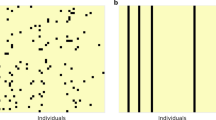Abstract
This paper investigates the choice of an interestgroup between lobbying (``words'') and pressure(``actions'') in order to influence a policymaker. Both lobbying and pressure are modeled asstrategic means of transmitting information that isrelevant to the policymaker. However, only pressure isdirectly costly to the policymaker. The interactionbetween the interest group and the policymaker isframed as a repeated signaling game. In equilibriumpressure – in contrast to lobbying – only occurswhen the interest group's reputation is sufficientlylow, and always improves its reputation. It is shownthat (repeated) lobbying cannot completely substitutefor pressure, and that the interest group may beforced to sustain its reputation through lobbying. Weconclude that pressure is typically used to build upa reputation, lobbying to maintain a reputation.
Similar content being viewed by others
References
Ainsworth, S. (1993). Regulating lobbyists and interest group influence. Journal of Politics 55: 41–56.
Austen-Smith, D. (1987). Interest groups, campaign contributions and probabilistic voting. Public Choice 54: 123–139.
Austen-Smith, D. (1993). Information and influence: Lobbying for agendas and votes. American Journal of Political Science 37: 799–833.
Austen-Smith, D. (1995). Campaign contributions and access. American Political Science Review 89: 566–581.
Austen-Smith, D., and Wright, J.R. (1992). Competitive lobbying for a legislator's vote. Social Choice and Welfare 9: 229–257.
Banks, J.S., and Sobel, J. (1987). Equilibrium selection in signaling games. Econometrica 55: 647–661.
Bauer, R., De Sola Pool, I., and Dexter, L. (1963). American business and public policy. The politics of foreign trade. Chicago: Aldine Atherton.
Baye, M.R., Kovenock, D., and de Vries, C.G. (1993). Rigging the lobbying process: An application of the all-pay auction. American Economic Review 83: 289–294.
Becker, G.S. (1983). A theory of competition among pressure groups for political influence. Quarterly Journal of Economics 98: 371–400.
Card, D., and Olson, C.A. (1995). Bargaining power, strike durations, and wage outcomes: An analysis of strikes in the 1880s. Journal of Labor Economics 13: 32–61.
Cho, I.K. (1993). Strategic stability in repeated signaling games. International Journal of Game Theory 22: 107–121.
Crawford, V.P., and Sobel, J. (1982). Strategic information transmission. Econometrica 50: 1431–1451.
Grenzke, J.M. (1989). PACs and the Congressional supermarket: The currency is complex. American Journal of Political Science 33: 1–24.
Grossman, G.M., and Helpman, E. (1994). Protection for sale. American Economic Review 84: 833–850.
Harrington, J.E. (1993). The impact of reelection pressures on the fulfillment of campaign promises. Games and Economic Behavior 5: 71–97.
Hicks, J.R. 1963. The theory of wages, 2nd edition. London: Macmillan.
Hoyt, W.H., and Toma, E.F. (1989). State mandates and interest group lobbying. Journal of Public Economics 38: 199–213.
Kreps, D.M., and Wilson, R. (1982). Reputation and imperfect information. Journal of Economic Theory 27: 253–279.
Lohmann, S. (1995a). Information, access, and contributions: A signaling model of lobbying. Public Choice 85: 267–284.
Lohmann, S. (1995b). A signaling model of competitive political pressures. Economics and Politics 7: 181–206.
Massó, J. (1996). A note on reputation: More on the chain-store paradox. Games and Economic Behavior 15: 55–81.
Milbrath, L.W. (1963). The Washington lobbyists. Chicago: Rand-McNally.
Moore, M.O., and Suranovic, S.M. (1992). Lobbying vs. administered protection: Endogenous industry choice and national welfare. Journal of International Economics 32: 289–303.
Noldeke, G., and Van Damme, E. (1990). Signaling in a dynamic labor market. Review of Economic Studies 57: 1–24.
Potters, J. and Sloof, R. (1996). Interest groups. A survey of empirical models that try to assess their influence. European Journal of Political Economy 12: 403–442.
Potters, J., and Van Winden, F. (1990). Modelling political pressure as transmission of information. European Journal of Political Economy 6: 61–88.
Potters, J., Van Winden, F. and Mitzkewitz, M. (1991). Doe concession always prevent pressure? In R. Selten (Ed.), Game equilibrium models IV. Social and political interaction, 41–63. Berlin: Springer Verlag.
Potters, J., and Van Winden, F. (1992). Lobbying and asymmetric information. Public Choice 74: 269–292.
Rasmusen, E. (1993). Lobbying when the decisionmaker can acquire independent information. Public Choice 77: 899–913.
Rees, A. (1977). The economics of trade unions, Revised edition. Chicago: The University of Chicago Press.
Sloof, R. (1998). Game-theoretic models of the political influence of interest groups. Boston: Kluwer Academic Publishers.
Sloof, R. and Van Winden, F. (1998). Show them your teeth first! A game-theoretic analysis of lobbying and pressure. Working paper. University of Amsterdam.
Snyder, J.M. (1991). On buying legislatures. Economics and Politics 3: 93–109.
Van Bergeijk, P.A.G. (1995). The Impact of economic sanctions in the 1990s. The World Economy 18: 443–455.
Van Damme, E.E.C. (1991). Stability and perfection of Nash equilibria, 2nd Edition, Berlin: Springer.
Wright, J.R. (1990). Contributions, lobbying, and committee voting in the U.S. House of Representatives. American Political Science Review 84: 417–438.
Young, H.P. (1978). The allocation of funds in lobbying and campaigning. Behavioral Science 23: 21–31.
Author information
Authors and Affiliations
Rights and permissions
About this article
Cite this article
Sloof, R., van Winden, F. Show Them Your Teeth First!. Public Choice 104, 81–120 (2000). https://doi.org/10.1023/A:1005139726166
Issue Date:
DOI: https://doi.org/10.1023/A:1005139726166




